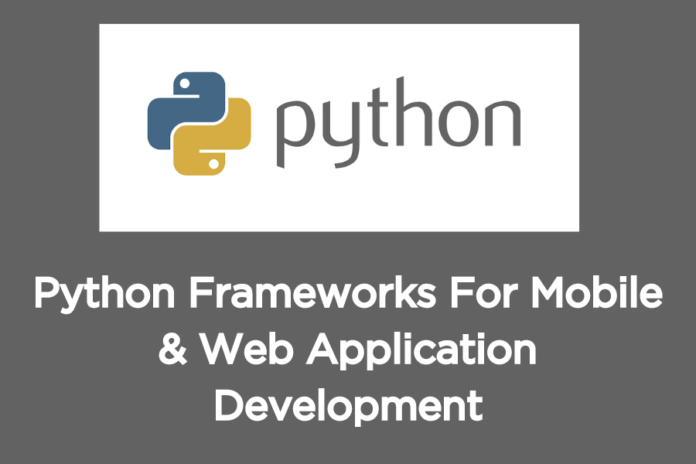Types of Python Frameworks
Here are the details for each type of Python framework
Microframework
- Microframeworks are Simple web application frameworks that offer all the functionality required to create online applications without adding further restrictions or dependencies.
- Their software is usually short, and they provide the bare minimum of capability for managing answers, routing HTTP requests, and executing the main logic of online applications.
- Microframeworks are ideal for creating small-scale web apps, ideation prototypes, and APIs where flexibility and ease of use take precedence over pre-integrated capabilities.
- The Python mvc frameworks Flask, Bottle, and Falcon are a few examples.
Asynchronous Framework
- Asynchronous frameworks are made to efficiently manage asynchronous input/output (I/O) operations. This means that web applications can manage concurrent requests and I/O without causing the execution thread to stall.
- They make use of the event loop to manage asynchronous jobs and the asyncio package in Python to enable asynchronous programming paradigms.
- Building scalable, high-performance web applications that need to manage a lot of concurrent connections and I/O-bound tasks is a good fit for asynchronous frameworks.
- Python asynchronous frameworks include Tornado, Sanic, and AIOHTTP.
Full-Stack Framework
- Online frameworks that are full-stack offer an extensive collection of tools, libraries, and components for developing online applications’ front-end and back-end parts.
- A templating engine for creating dynamic HTML content, session management, authentication, URL routing, and an ORM (Object-Relational Mapping) for database interaction are typical features.
- By providing pre-built solutions for typical web development activities, full-stack frameworks seek to expedite the development process by eliminating the need to independently integrate numerous libraries or components.
- Building intricate, database-driven web apps with a broad range of features and functionalities is a good fit for full-stack frameworks.
- Python full-stack frameworks include TurboGears, Pyramid, and Django.
The advantages and trade-offs of each type of Python framework vary, enabling developers to select the one that best suits their needs in terms of scalability, development preferences, and project requirements. Comprehensive Python Development Offerings a wide range of frameworks that can be used to develop a sophisticated web application, a high-performance API, or a small-scale microservice.
Best Python Frameworks
Here are details for each of the mentioned Python frameworks
- Bottle: A lightweight, uncomplicated web framework for Python web application development on a small scale. It emphasizes simplicity of use and minimalism.
- AIOHTTP: A Python asynchronous web framework that makes use of the asyncio module. It works great for developing scalable, high-performance web applications with asynchronous input/output.
- CubicWeb: A semantic framework for web applications with a focus on flexibility, scalability, and reuse. It facilitates the construction of data-centric web applications and is intended for use with model-driven software development methodologies.
- CherryPy: A simple Python web framework that enables programmers to create web apps with Pythonic code. It offers a simple and easy-to-use interface for managing HTTP requests and answers.
- Dash: A Python framework for creating dashboards and analytical online apps with Plotly.js for visualizing data. Making interactive web-based data visualization tools is made easier by it.
- Falcon: A fast web framework for Python RESTful API development. It is well-known for being quick, easy to use, and resource-efficient, which makes it perfect for developing scalable online services.
- Django: A feature-rich web framework for Python that helps developers create intricate, database-driven websites. It adheres to the “batteries-included” principle and offers several features out of the box, such as an admin interface, authentication, and an ORM.
- Flask: is an easy-to-learn and use Python web framework that is versatile and lightweight. It offers a straightforward method for developing websites and gives developers the freedom to select the elements they require for their work.
- Growler: is an Express.js-inspired asynchronous Python web framework. It is intended for use with Python’s asyncio module to create high-performance, event-driven web applications.
- Giotto: is a Python microframework that prioritizes extensibility, speed, and ease of use. It offers a simple feature set that makes it easy to create web apps with readable and well-written code.
- MorePath: is a web framework for Python that prioritizes expansion, flexibility, and simplicity. It enables developers to create streamlined and easily maintained web applications by adhering to the principles of RESTful architecture.
- Hug: A Python web framework that puts simplicity, speed, and productivity first when creating APIs. In addition to offering integrated support for input validation and serialization, it streamlines the process of creating and documenting APIs.
- Pylons Framework: Convention over configuration is the guiding idea of this lightweight Python web framework. It offers little boilerplate code while offering flexibility and adaptability for web application development.
- Pycnic: A Flask-inspired microframework for Python RESTful API development. Its emphasis on usability and simplicity enables developers to design scalable, light-weight APIs with no overhead.
- Pyramid: is a scalable and adaptable Python web framework that may be used for a variety of purposes, ranging from straightforward web apps to intricate business systems. It puts an emphasis on simplicity, extensibility, and flexibility.
- Tornado: A networking library and asynchronous web framework designed for real-time and highly concurrent Python applications. Building web servers, websockets, and streaming applications is a good use for it.
- Sanic: A Python web framework made for creating scalable and quick online applications. It is designed for low latency and great performance, and it makes use of asynchronous I/O operations.
- Web2Py: is a full-stack web framework designed for Python that offers an integrated database abstraction layer, authentication system, and administration interface to streamline the online building process.
- TurboGears: A Python full-stack web framework that incorporates elements from various frameworks in accordance with the “best of breed” theory. It offers a minimally configured, adaptable, and extendable architecture for creating web applications.






